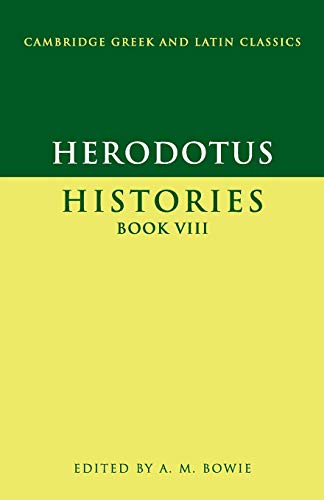Passage Comparison - GREK 301 - S23
Passage Comparison

Key Details
- Due: May 17, 11:59 PM
- Format: Google Docs (share with me via email)
- Possible Points: 200
Over the course of this semester, we will be working on a series of commentaries on an important passage from Book 8 of Herodotus’ Histories in which the historian defines what it means to be Greek. The point of doing these various commentaries on 8.144 is to investigate different aspects - grammatical, historical, contextual, and cultural - of the passage in order to dig deeper into its meaning.
While your first two commentaries aimed to bring out key features of Herodotus 8.144, this commentary will have a different focus. Your goal will be to compare and contrast how race and ethnicity are presented in this passage with three other passages that we have read in class. The passages you select are totally up to you.
In your commentary, you will discuss on how these passages draw from, build on, and challenge Herodotus’ conception of Greekness presented in Book 8, paying close attention to the terminology and ideology that are used in these passages. In addition, you will also reflect on how these passages relate to key ancient ideas as well as more modern conceptions of race and ethnicity.
For further information about alternative ancient theories of race and ethnicity, the readings from McCoskey, Murray, and Haley will be useful references, as will Kennedy et al.’s sourcebook on race and ethnicity in the ancient world.
In terms of nuts and bolts of what you will need to submit, please include in the Google Doc that you submit a) the three passages in Greek; b) your discussion of these three passages (roughly 3 paragraphs each) with in-text citations; c) a works cited below the commentary.
Just as reminder, here are some principles to bear in mind as you work through your commentary:
1) You do not need to comment on everything – you can and should be selective in the things that you choose to write about. I would rather you investigate a few things in depth than superficially touch a large number of topics. (NB: the exception to this rule is the grammatical commentary - you will want to explain in detail the grammatical features of the passage).
2) Focus on small details before moving onto larger questions. This might mean taking a deep-dive into a particular word/letter or an obscure figure. Often, it is these smaller observations that can produce far-reaching insights.
3) Commentary entries can take many forms. They may be informative (i.e. explaining a factual situation); they may be interpretive; they may be exploratory. One of the fun parts about creating a commentary is that you don’t have to arrive at a definite answer, your job is to help the reader understand the nuances and complexities of the text.
Assessment
A successful project will:
- Be shared with me on Google Docs by May 17 at 11:59 PM
- Compare and contrast how race figures in each of these passages with Herodotus 8.144
- Reflect on how each of these passages connect with other ancient and modern conceptions of race and ethnicity
- Cite modern scholarships in your commentary
- Feature a works cited